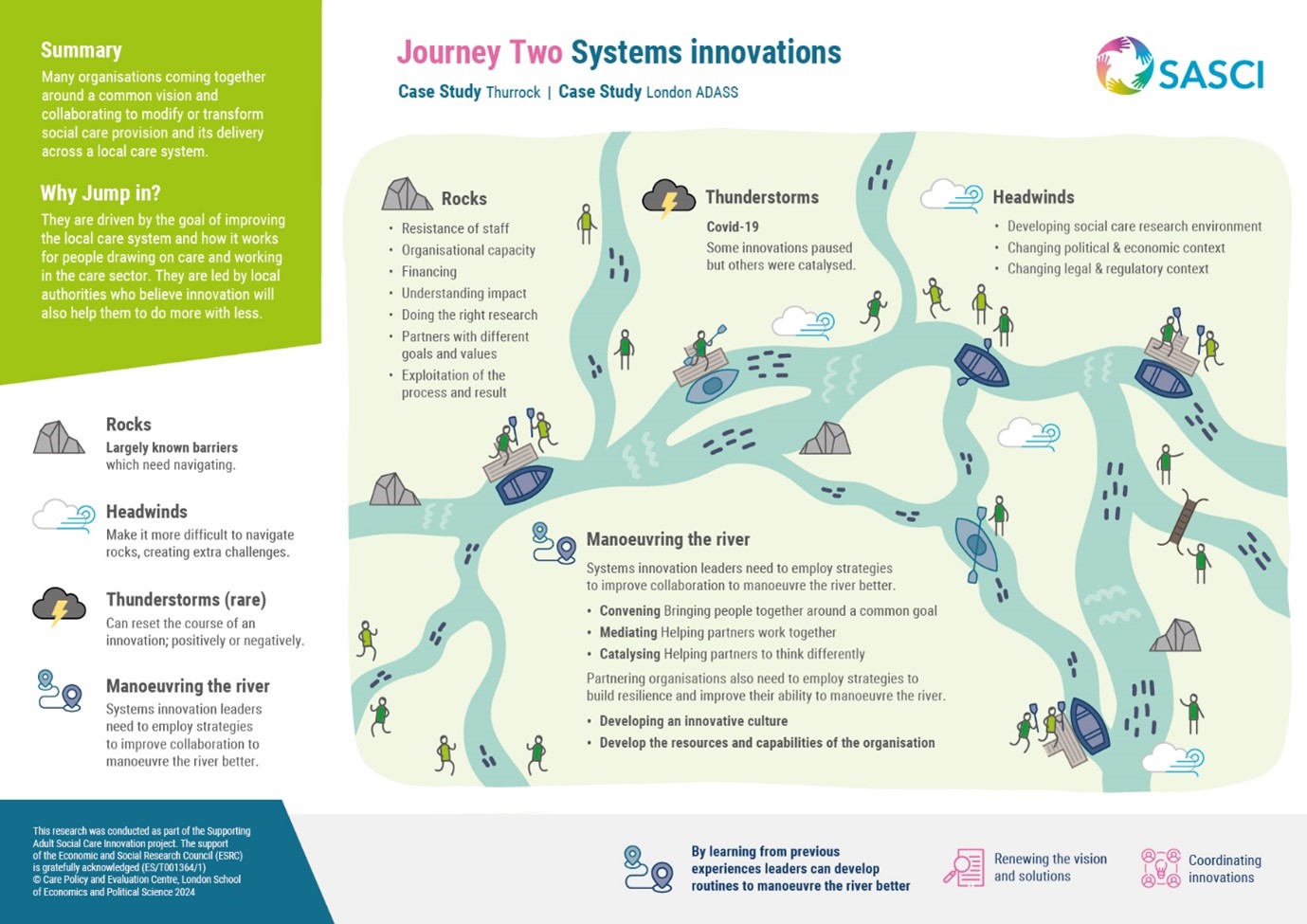Evidence shows there is an abundance of innovation and entrepreneurial activity taking place in adult social care. However, only a small number of these approaches have spread widely.
Local authorities play an important role in driving innovation. We find that most innovations involve strong cross-sectoral collaboration, and public sector organisations are the most prevalent collaborator. This makes sense because local authorities have a strategic leadership role in their areas as market-shapers, directing local markets and commissioning services on behalf of their residents who need care and support. But how should local authorities shape markets for innovation and simultaneously find new ways of delivering their in-house services and back-room processes?
For the past five years, the Supporting Adult Social Care Innovation (SASCI) project team has been investigating the process of innovating in adult social care. Led by the Care Policy and Evaluation Centre at the London School of Economics and Political Science (LSE), the project aims to understand how we can accelerate the scaling and spread of innovations.
An upcoming open access webinar, in partnership with Research in Practice, will share findings from the project, touching on systems innovations, and how to adopt frugal innovation effectively.
From projects to systems innovations
SASCI studied examples of local authorities leading what we have called ‘systems innovations’. In systems innovations, many organisations come together around a common vision and collaborate to fundamentally change provision and its delivery in a geographical area. This is often through the implementation of multiple linked innovations. These innovations were interesting because they are examples of local authorities taking a strategic leadership role with respect to innovation in their local areas. They were also immune to ‘pilotitis’; they have been sustained over a long period of time, unlike many innovation projects.
Based on our case studies of systems innovations, we have mapped the innovation journey. Following the work of Andrew Van de Ven, we have depicted innovation as a journey down an uncharted river. This map shows the challenges that local authorities will face. It also shows what strategies they will need to manoeuvre the river better and increase their chances of success.

An example of an innovation journey: Systems innovations
Importantly, some of the rocks and headwinds are beyond the control of local authorities and their local partners to change. However, they can work with others to shape the wider system. We explore how organisations work together to shape the system in the social innovation journey, which was another type of journey we identified, alongside business model innovations.
Innovating in a time of financial constraint
The lack of money in the sector forms the backdrop to innovation. Finances particularly affected how local authorities viewed the purpose of innovation. Although local authorities wanted to use innovation to improve people’s lives, they were more likely to see it as a tool to save money. We saw various ways in which the pressures of operating in such a context affected what people thought was possible and how innovation was carried out. Since we cannot ignore the impact of resource constraints on the innovation journey, we wondered whether the adult social care sector should more actively seek out frugal innovation?
For health and social care professionals, it's important to consider how innovation in local authorities can help deliver better outcomes for people who draw on services now, and in the future.
Supporting innovation in adult social care
The SASCI project, funded by the Economic and Social Research Council (ESRC) as part of UK Research and Innovation, is partnering with Research in Practice to host an open access webinar on 28 March. During the webinar, we will share lessons from five years of research into innovation in adult social care and touch on these questions of systems innovations.
The webinar is aimed at people working in local authorities, including practitioners and those in commissioning, transformation and managerial roles.

